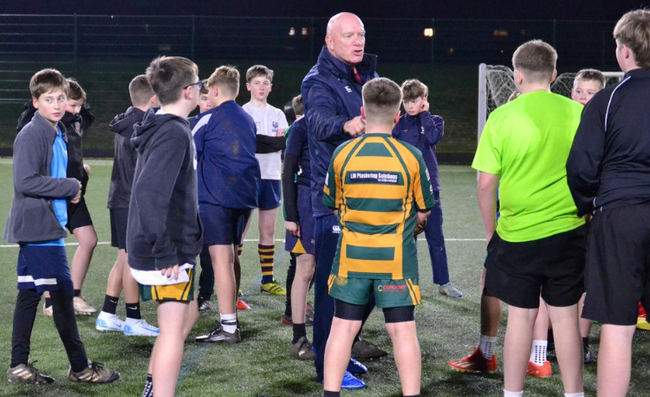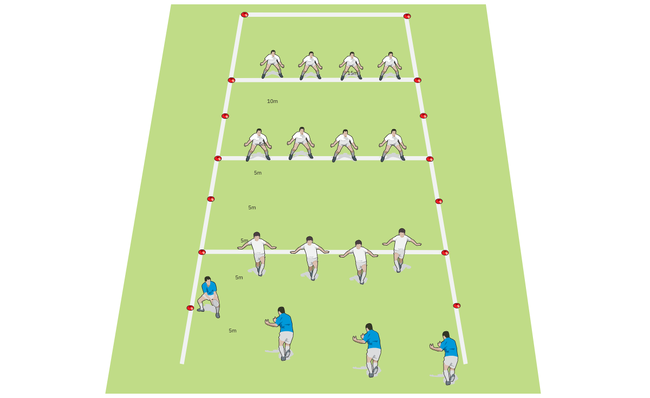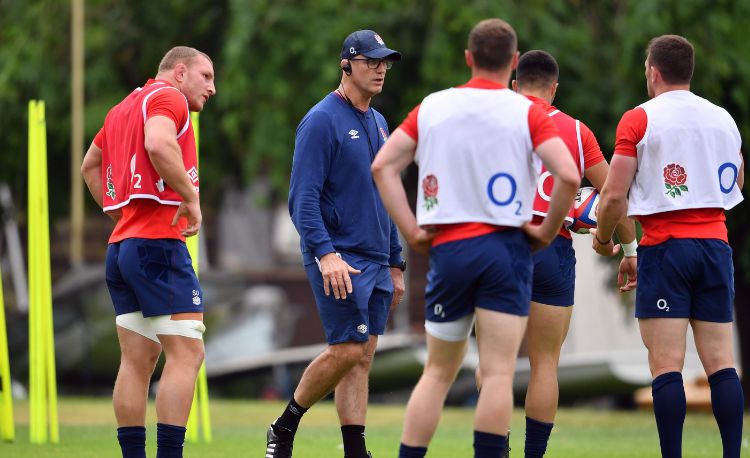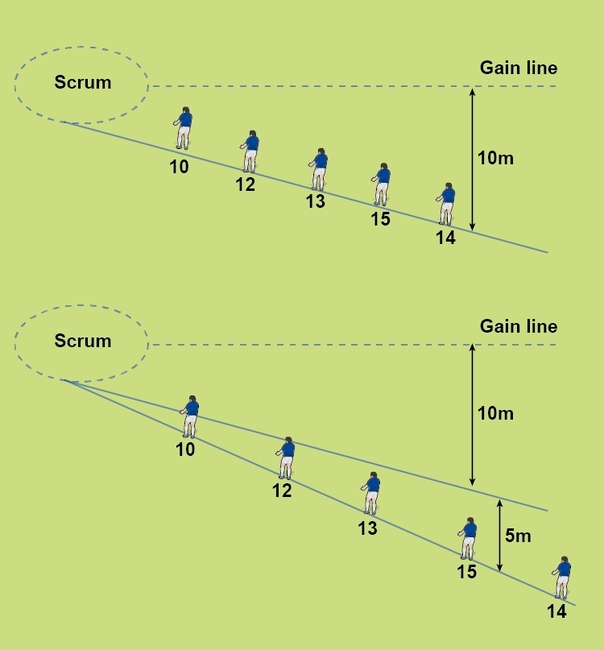What do players want from your sessions?
Understanding what players look for will help you to design more effective and enjoyable experiences. By Gary Townsend, head of rugby at Switch
When designing drills and practices, it is important to have one thing at the forefront of your mind – what do players want from your sessions?
Understanding the motivations of young players will allow you to keep them engaged, breed confidence and accelerate their development.
Here are the five key key factors in designing effective and enjoyable sessions...
The core: players want to play
At the heart of any rugby session is one simple desire: players want to play rugby.
While fun drills and exercises can be helpful, overcomplicating sessions with non-rugby elements risks diluting the core experience.
Remember that players, particularly at older age groups, attend sessions primarily for rugby itself. For younger children, social interaction and exercise might be part of the motivation, but, as they mature, their focus shifts to improving their rugby skills.
For example, by the time players are 11 or 12 years old, they expect rugby to be the dominant activity at training.
It is critical to strike a balance between fostering fundamental movement skills and maintaining the rugby-specific focus.
While there is value in building agility and other athletic abilities, these should not overshadow rugby itself.
Three key takeaways
- Players come to rugby sessions to play rugby.
- Fun activities are important, but should always lead back to rugby.
- Balance rugby skills with physical and social development.
The role of fun in learning rugby
Fun is central to effective rugby coaching, especially for younger age groups.
Seven- and eight-year-olds are egocentric, meaning they want the ball and also want to run with it. Drills designed around sharing, or strategic play, might not resonate with them in the same way as older players.
Fun, engaging activities, that still develop rugby-specific skills, should be the cornerstone of any session for this age group.
Small-sided games, for example, allow children to engage in enjoyable, competitive play, while still learning the fundamentals.
These games can also be tailored to encourage children to pass, run and make decisions, without imposing rigid rules out of place for their developmental stage.
Three key takeaways
- Fun should be an essential part of every session, especially for younger players.
- Small-sided games are a great tool to mix enjoyment with learning.
- Drills should be designed to cater to players’ natural egocentric tendencies at younger ages.
Building confidence through engagement
Confidence is key to improving as a rugby player, and you should design sessions that encourage players to feel more confident with the ball in hand.
For children who are less inclined to run with the ball, games can be designed to gradually build their confidence.
A good example would be a tagging game, where players must be tagged by multiple defenders before passing, giving them more chances to hold the ball and make decisions.
This celebrates the individual skills of each player and helps reinforce the idea that everyone on the team has something valuable to contribute.
By fostering an environment of support and development, players can build confidence not only in their rugby skills, but also in their role within the team.
Three key takeaways
- Design games that build confidence in all players, especially those who are hesitant.
- Recognise and celebrate individual contributions to team success.
- Create environments that encourage players to experiment and develop their skills.
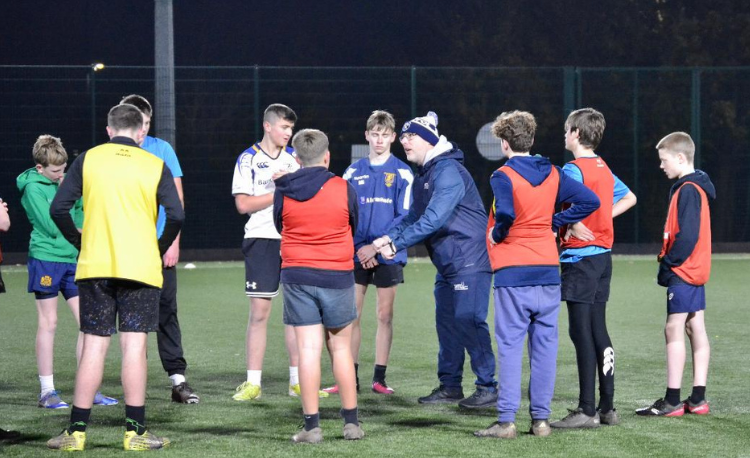
The transition to rugby-heavy sessions
As players move into their pre-teen years, rugby becomes a more significant focus.
At this stage, they begin to appreciate the tactical aspects of the game and how their individual skills contribute to team success.
Gradually introduce more structured elements of the game, such as passing and positional awareness, without overwhelming players with complex strategies.
Introducing specific rewards for good passing or support play can help develop these skills without taking away from the fun.
For example, coaches could track how many successful passes are made before a try, rewarding players for teamwork.
This gradual shift helps players understand that while they may still have fun, they are also learning the game’s more intricate details.
Three key takeaways
- Gradually shift from fun-based activities to more rugby-focused sessions as players mature.
- Encourage teamwork and strategic thinking without making the game overly complex.
- Use simple rewards or recognitions to reinforce positive behaviour on the field.
Off-the-ball awareness and team plays
One area often overlooked in youth rugby coaching is off-the-ball play.
While it is natural to focus on what happens when a player has the ball, rugby players spend the majority of their time off the ball.
Helping players understand positioning, support play, and defensive alignment is, therefore, crucial to overall development.
Incorporate off-the-ball awareness through simple exercises that encourage players to think about their positioning before and after receiving the ball.
One example might be to freeze a game momentarily and ask players to re-position themselves for support or defence. This active reflection helps them internalise the importance of off-the-ball movement, which is crucial as they advance in the sport.
Three key takeaways
- Off-the-ball awareness is key to a well-rounded rugby education.
- Simple exercises can teach players about positioning and support play.
- Regularly reinforcing these lessons helps players understand their role in the team.
Summary
- Players want sessions to focus on rugby, especially as they get older.
- Fun and engagement should be prioritized, particularly for younger age groups.
- Confidence-building activities help players develop and contribute to the team.
- By designing sessions that cater to players’ desires and developmental stages, you can create environments where players not only improve their rugby skills, but also enjoy the process of learning and growing within the sport.
Related Files
Newsletter Sign Up
Coaches Testimonials

Gerald Kearney, Downtown Las Vegas Soccer Club

Paul Butler, Florida, USA

Rick Shields, Springboro, USA

Tony Green, Pierrefonds Titans, Quebec, Canada
Subscribe Today
Be a more effective, more successful rugby coach
In a recent survey 89% of subscribers said Rugby Coach Weekly makes them more confident, 91% said Rugby Coach Weekly makes them a more effective coach and 93% said Rugby Coach Weekly makes them more inspired.
Get Weekly Inspiration
All the latest techniques and approaches
Rugby Coach Weekly offers proven and easy to use rugby drills, coaching sessions, practice plans, small-sided games, warm-ups, training tips and advice.
We've been at the cutting edge of rugby coaching since we launched in 2005, creating resources for the grassroots youth coach, following best practice from around the world and insights from the professional game.
